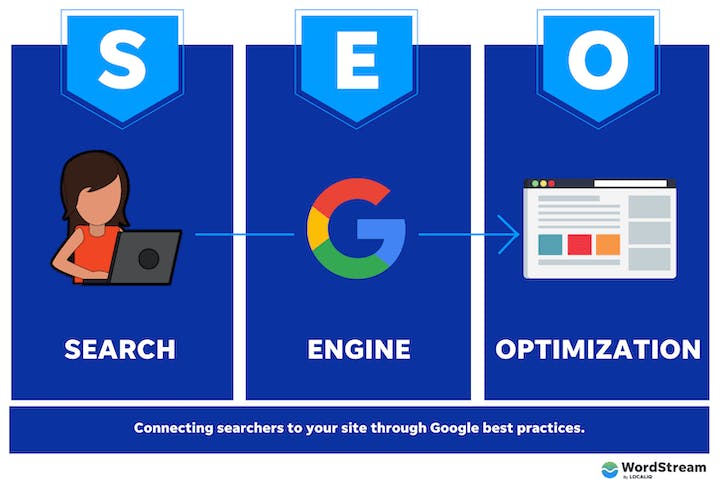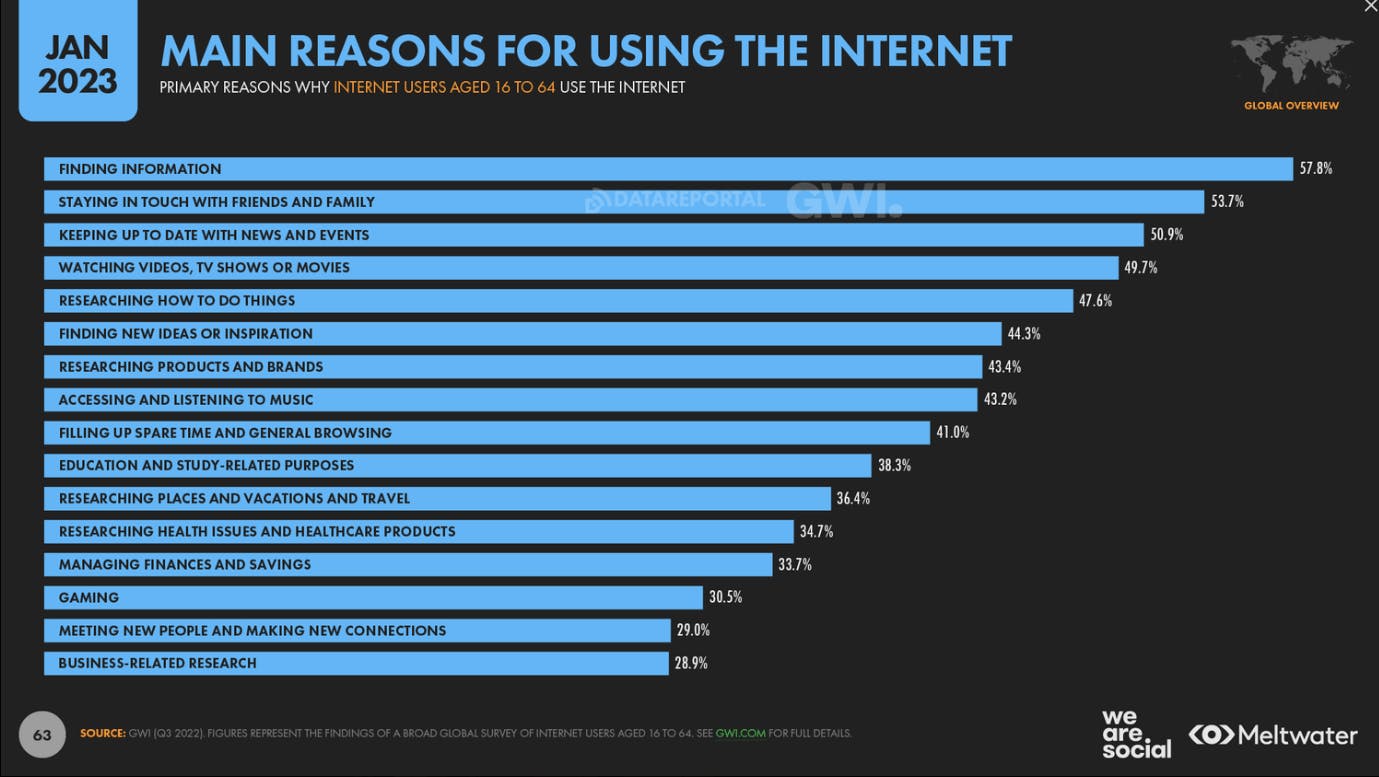
Photo by NisonCo PR and SEO on Unsplash
SEO Basics for Technical Writers: Improving Discovery, Relevance, and Authority
Hey Everyone!!!
This blog is the first blog in the 'SEO' series that I will be writing about on Hashnode. Ever since I started writing blogs, I was on the lookout for scaling them and attracting a larger audience and more opportunities - that is when I came across SEO.
In this blog, I will be giving an intro to SEO, its importance and how developers and technical writers can use SEO techniques to increase their brand!!!
Let's Begin!!!

PermalinkWhat is SEO?
Search engine optimization (SEO) is the process of improving the quality and quantity of website traffic to a website or a web page from search engines.SEO targets unpaid traffic (known as "natural" or "organic" results) rather than direct traffic or paid traffic. Unpaid traffic may originate from different kinds of searches, including image search, video search, academic search, news search, and industry-specific vertical search engines. (Source:Wikipedia)
Search engine optimisation (SEO) frequently entails making minor adjustments to various elements of your website. When paired with additional optimisations, these adjustments could have a considerable effect on the user experience and speed of your site in organic search results, even though they may appear as incremental gains when evaluated separately.

PermalinkWhy is SEO Important?
Google processes over 8.5 billion searches every day. It has steadily increased YOY since 1998. In fact, Google makes up 78% of all online search behaviour today. But who is benefiting from our increased search behaviour?
Global research by Datareportal shows 43.2% of internet users aged 16 to 64 cite 'researching products and brands as one of their primary reasons for using the internet. (Source:SmartInsights)
So, in the case of unknown products and brands or even individuals trying to make a name for themselves by trying to increase awareness/recognition, priming your search strategy to increase impressions on non-branded high-intent keywords is more important than ever.

PermalinkBenefits of SEO
- Increased visibility and traffic to your website: the higher your website pages rank on Google, the more traffic you’ll get.
- Improved website quality: as its full name implies, there are several ways you must optimize your website to get it to meet Google’s high standards. By doing this, you’ll improve your website in the process.
- Build audience trust: search engine users naturally trust websites that ranked at the top as there is a sense that Google has “vetted” the pages that appear.
- Establish your brand as an authority in your field: SEO involves a lot content creation, like blog writing. Naturally, the more your write about a topic, the more people will turn to you as a valued source of information (but only if the content is high-quality, you can’t cheat with SEO.)
PermalinkSEO for Google
Today's SEO requires balancing the user's needs with making it simple for search engines to crawl your page. Even if your website is filled with the best material available online, no one will find it if it isn't search engine optimised.
Knowing even the most fundamental SEO "does" and "don'ts" could make (or ruin) how people find your website.
PermalinkExpertise - Authoritativeness - Trustworthiness (E-A-T)
The expertise, authoritativeness, and trustworthiness of a page's contents, of the website itself, and of the creator of the website's content all matter immensely. Google looks for E-A-T.
You can bet that a page with low E-A-T won't rank for many highly valuable keywords. When it comes to SEO and the production of superb, high-quality content that aids in addressing or resolving the queries or issues of searchers, the acronym E-A-T is a fantastic guiding principle.
PermalinkHow Do Search Engines Rank Your Content?
Google Search works in three stages, and not all pages make it through each stage:
Crawling: Google downloads text, images, and videos from pages it found on the internet with automated programs called crawlers. Once Google discovers a page's URL, it may visit (or "crawl") the page to find out what's on it. Pages are discovered when you submit a list of pages (a sitemap) for Google to crawl.
Indexing: After a page is crawled, Google tries to understand what the page is about. This stage is called indexing and it includes processing and analyzing the textual content and key content tags and attributes, such as
<title>elements and alt attributes, images, videos, and more. Google analyzes the text, images, and video files on the page, and stores the information in the Google index, which is a large database.Serving search results: When a user searches on Google, Google returns information that's relevant to the user's query.
PermalinkHow Does Content Rank In Search?
The key to getting your content to rank well in search is having a clear understanding of how Google finds, analyzes, and ranks your content.
Getting your content to rank highly in search results depends predominantly on two things:
Improving discovery(crawling) and relevance(indexing) by creating lots of high-quality content on the topics you want to be known for;
Building authority(ranking) by getting lots of high-quality backlinks to your website
The whole process can be summarized as follows:
Search engine bots discover your content by crawling it.
Search engine bots decide how relevant your content is by indexing it (based on signals like keywords).
Search engine bots rank your content in search results based on your site’s SEO authority.
The Ranking Strength is directly proportional to the Authority of the site
PermalinkHow to determine Authority?
One of the most crucial elements in getting your website to show up at the top of Google search results is authority. Google wants to provide its consumers with the greatest solutions to their questions, thus they must pick reputable and authoritative websites to show up first in search results.
However, how does Google establish authority?
A lot of discussion surrounds the subject/content.
The material/content is frequently cited.
Several works have referenced the content. (Backlinks.)
If your website has a lot of links from other credible and authoritative sites, search engines can determine that your website is also authoritative.
PermalinkConclusion
In conclusion, SEO is an essential aspect of website development and content creation. By implementing SEO techniques and focusing on E-A-T, developers and technical writers can increase their website's visibility, attract more traffic, and establish their brand as an authority in their field.
Improving discovery, relevance, and authority is key to getting content to rank well in search results, and building authority requires a lot of discussion around the content, frequent citations, and backlinks from other credible and authoritative sites.
Overall, understanding the basics of SEO and consistently optimizing your website can lead to increased success and opportunities.
In the next blog, I will be sharing how to increase Authority of your pages and sites and also explain some SEO strategies I have learnt!!!
PermalinkStay determined, stay focused and keep pushing forward !!!

PermalinkLiked This Blog?
Do react and comment with your thoughts on the points discussed above.
Make sure to follow me :
Subscribe to our newsletter
Read articles from Atharva Salitri's Blog directly inside your inbox. Subscribe to the newsletter, and don't miss out.

